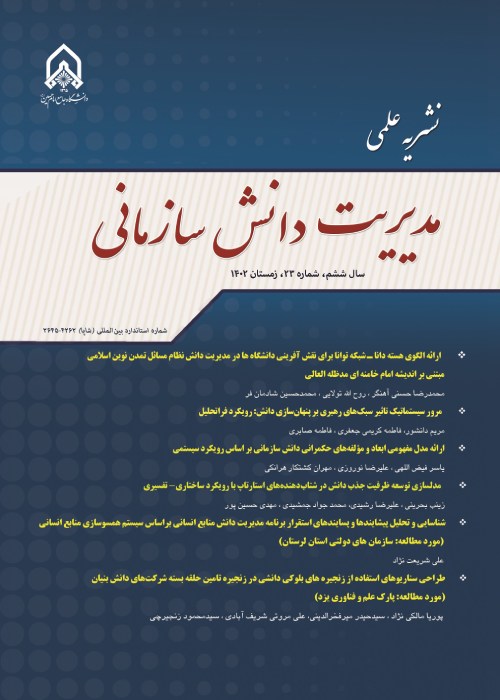Designing a Model for Creating Knowledge-Based Companies through SWOT Strategic Analysis Approach (Case study: Universities of Medical Sciences in Mazandaran Province)
Knowledge-based economies and the movement towards capital gaining through the application of science and knowledge, are undeniable necessities for the preservation and survival of universities. Furthermore, they help meet the needs of the people at universities and the society. Universities of medical sciences across the country contain creative human resource (including faculty members, students, graduates and employees) with technological ideas. However, they show little tendency towards commercialization and creation of knowledge-based companies. This research is intended to provide a model for creating knowledge-based companies through SWOT approach in medical universities in Mazandaran province. This applied research follows field method to regard the level of control of field variables. In terms of data collection it is a descriptive research relying on context search. The research can also be regarded as an exploratory research by some considerations. The statistical population of the qualitative stage includes 15 scientific experts, chairmen and experts of the university's development centers, research and technology units of the university, officials and experts of the science and technology parks, and experts of knowledge-based companies. The statistical population of the quantitative phase include the faculty members of medical sciences universities in Mazandaran (University of Babul and Mazandaran University) including 750 professors from whom a sample of 256 people were selected as the sample by stratified random sampling method based on Morgan table. A researcher-made questionnaire, containing 45 items, was developed as a result of interviews for data collection. The validity and reliability of this questionnaire were confirmed. Qualitative data analysis of the research was done through open coding and central coding. For the analysis of quantitative data, the structural equation model test using the partial least squares method (PLS) was used for performing factor analysis. Using the structural equation model test, the researchers designed the final research model as a model for creating knowledge-based companies through SWOT approach for medical universities. The model illustrates the share of each factors. Threats occupy the highest factor load and first rank with a factor load of 0.813. Opportunities fit the second rank with a factor load of 0.787. Strengths with a factor load of 0.0569 take the third rank and the factor of weaknesses take the fourth rank with a factor load of 0.266..
- حق عضویت دریافتی صرف حمایت از نشریات عضو و نگهداری، تکمیل و توسعه مگیران میشود.
- پرداخت حق اشتراک و دانلود مقالات اجازه بازنشر آن در سایر رسانههای چاپی و دیجیتال را به کاربر نمیدهد.


